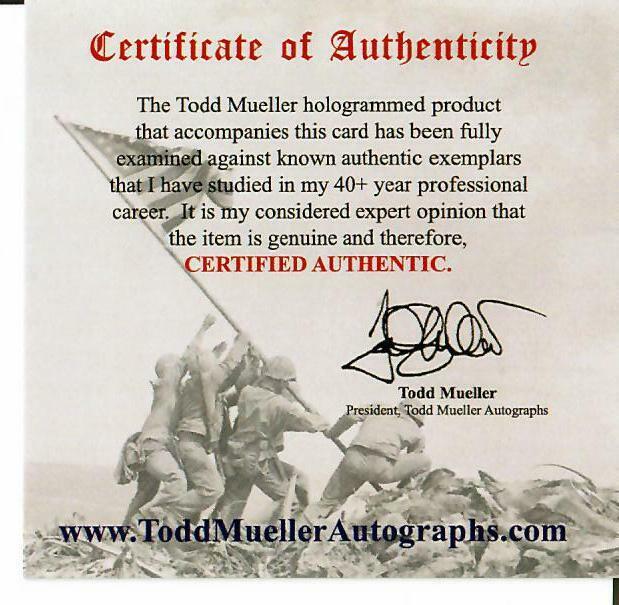-40%
"Cancer Researcher" Herman Eisen Hand Signed FDC Dated 1963 Todd Mueller COA
$ 258.71
- Description
- Size Guide
Description
Up for auction"Cancer Researcher" Herman Eisen Hand Signed First Day Cover Dated 1963.
This item is certified authentic by Todd Mueller Auctions and comes with their Certificate of Authenticity.
ES-4592
Herman Nathaniel Eisen
(1918–2014) was an American
immunologist
and
cancer
researcher. He served on the faculty at
New York University School of Medicine
in the early 1950s, became the Chief of Dermatology at the
Washington University School of Medicine
in 1955, and was a founding member of the
MIT
Center for Cancer Research (now called the Koch Institute for Integrative Cancer Research). Eisen retired and assumed
professor emeritus
status in 1989, but continued to be active as a researcher; he was working on a manuscript the day he died in 2014. Eisen was born in
Brooklyn, New York
in 1918, one of four children of Jewish immigrants from Eastern Europe. His undergraduate studies at
New York University
began in 1934 but were interrupted by a case of
tuberculosis
, which required him to withdraw from school for a year; he later recalled this as a key event in his life inspiring him to focus on intellectual activities. After graduation in 1939, he began as a medical student at NYU and received his
M.D.
in 1943. He worked briefly as an assistant in
pathology
at
Columbia University
, where he was first exposed to immunology research by
Michael Heidelberger
. He then returned to NYU again for his
residency
. Eisen was one of the first recipients of a new form of
National Institutes of Health
fellowship for
physician-scientists
, which supported further work at NYU with
Fred Karush
studying
antibodies
. Eisen next moved to
Sloan-Kettering
to work with
David Pressman
and left after a year to return to NYU as a faculty member. Eisen's first faculty position was at NYU in the then-new Department of Industrial Medicine, where he was funded to work part-time as a researcher and invest the remainder of his time in clinical practice. He found this combination unsustainable and therefore was receptive when approached by
Barry Wood
to recruit him to
Washington University School of Medicine
as the Chief of Dermatology there. Eisen moved to Washington University in 1955 and spent five years in the position before moving to the Department of Microbiology and serving as its chair. Following the
National Cancer Act of 1971
,
Salvador Luria
recruited Eisen to become one of the founding members of MIT's new Center for Cancer Research, where Eisen would spend the rest of his career. Eisen officially retired in 1989, assuming
professor emeritus
status, but remained active in research and in mentoring younger scientists in the MIT community. During this time he worked with a number of MIT colleagues on their ongoing projects, including
Jianzhu Chen
and
Arup Chakraborty
.
Eisen was elected a fellow of the
American Academy of Arts and Sciences
in 1965, a member of the
National Academy of Sciences
in 1969, and a member of the
Institute of Medicine
in 1974. He served as the president of the
American Association of Immunologists
in 1968–69
[1]
and received the organization's
Lifetime Achievement Award
in 1997.
Eisen's research is regarded as foundational in the field of
immunology
. After his death, he was remembered as "the last of the great immunochemists".He is particularly well known for his studies of
affinity maturation
of
antibodies
beginning in the late 1950s while he was at Washington University. Much of this work was conducted with
postdoctoral fellow
Lisa Steiner
, who went on to become the first woman in the MIT Department of Biology. In the 1980s Eisen changed research interests from a focus on antibodies to a focus on
T cells
and
cell-mediated immunity
. Eisen's wife Natalie was also a physician and practiced as a
pediatrician
in New York, served as Assistant Director of
Bellevue Hospital
in St. Louis, and then practiced at the
Harvard Street Neighborhood Health Center
in Boston. The couple had five children.
[4]
Eisen remained an active research scientist for many years following his official retirement and was working on a manuscript related to antibody affinity the day he died in 2014.










